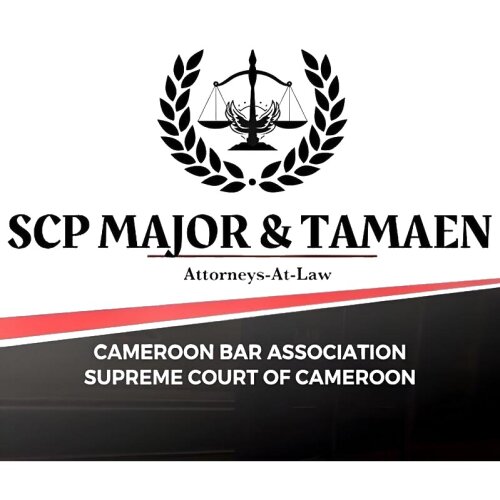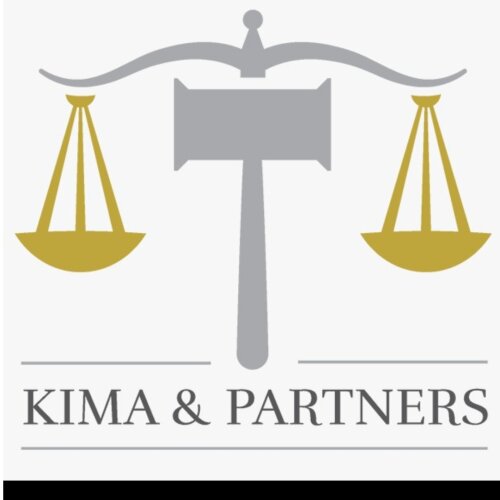Best Debt Capital Markets Lawyers in Yaoundé
Share your needs with us, get contacted by law firms.
Free. Takes 2 min.
List of the best lawyers in Yaoundé, Cameroon
About Debt Capital Markets Law in Yaoundé, Cameroon
Debt Capital Markets (DCM) are a vital part of the financial system in Yaoundé, Cameroon. They involve the issuance, trading, and regulation of debt instruments such as bonds, notes, and other forms of securities that allow governments and corporations to raise funds from investors. In Cameroon, particularly in Yaoundé, the DCM environment is shaped by a combination of national laws, regional treaties, and regulatory authorities. The system helps entities finance large-scale projects, manage liquidity, and support economic growth. Understanding the legal framework is essential to navigating the issuance, trading, and compliance requirements associated with debt capital markets.
Why You May Need a Lawyer
Engaging in Debt Capital Markets transactions can be complex and subject to a range of legal and regulatory risks. Here are some common scenarios where legal advice can be crucial:
- Structuring and issuing bonds or other debt instruments for corporations or government entities.
- Performing due diligence and ensuring regulatory compliance for foreign and local investors.
- Providing risk analysis regarding the legal implications of different types of securities.
- Assisting with the listing of securities on the regional stock exchange.
- Negotiating terms and drafting documentation for debt offerings.
- Resolving disputes related to debt securities, including defaults or enforcement of security interests.
- Navigating cross-border investments and understanding double taxation agreements.
- Ensuring compliance with anti-money laundering and anti-terrorist financing regulations.
- Managing disclosure requirements and investor communications.
A lawyer specialized in DCM can help protect your interests, minimize risks, and guide you through every stage of a transaction.
Local Laws Overview
Debt Capital Markets in Yaoundé operate within a multi-level legal framework. There are several key aspects to consider:
- OHADA Uniform Acts: Cameroon is a member of the Organisation pour l'Harmonisation en Afrique du Droit des Affaires (OHADA), which provides harmonized business laws across member states, including rules on securities, company law, and bankruptcy.
- Financial Markets Regulation: The main regulator is the Central African Financial Market Supervisory Commission (COSUMAF), responsible for the regulation and oversight of the market, investor protection, and enforcement of disclosure requirements.
- Bank of Central African States (BEAC): Controls monetary policy and regulates foreign exchanges, which are particularly relevant to cross-border debt transactions.
- Central African Stock Exchange (BVMAC): As the regional exchange, BVMAC administers the listing and trading of debt securities and ensures issuers comply with listing requirements.
- Local Taxation: Cameroon imposes taxes on certain gains and interest derived from debt instruments. Specific considerations apply to residents and non-residents.
- Anti-Money Laundering (AML) Rules: All market participants must adhere to AML and counter-terrorism financing regulations, with detailed due diligence requirements.
- Civil Law System: Legal processes are rooted in civil code traditions, meaning transactions must follow formal documentation and registration procedures.
Legal professionals ensure that all steps, from structuring deals to post-issuance compliance, meet these local requirements.
Frequently Asked Questions
What is the role of COSUMAF in the Debt Capital Markets?
COSUMAF is the primary regulatory authority that oversees the securities market, including bonds, in the Central African Economic and Monetary Community (CEMAC) zone, which includes Cameroon. It authorizes public offerings, enforces compliance, and protects investors.
What legal documentation is required for issuing bonds in Yaoundé?
Issuing bonds typically requires a prospectus (or offering memorandum), approval from COSUMAF, board resolutions, and detailed legal agreements with investors and intermediaries. These documents must comply with OHADA company law and local regulatory requirements.
Can foreign investors participate in Debt Capital Markets in Yaoundé?
Yes, foreign investors can buy Cameroonian debt securities, but they must adhere to local registration, tax, and foreign exchange control rules governed by BEAC and COSUMAF.
What are the tax implications for investing in debt securities?
Taxes may apply on interest earned from debt instruments and capital gains upon sale. Rates differ for individuals, corporations, residents, and non-residents, and tax treaties should be considered to avoid double taxation.
Are there any limitations on the amount of debt a company can issue?
Yes, there are legal and regulatory caps on the level of indebtedness a Cameroonian company can incur, as outlined in OHADA law and local financial regulations. These are designed to protect both issuers and investors.
What is the process for listing debt securities on BVMAC?
Companies must prepare and submit a detailed application, including financial statements, a prospectus, legal opinions, and compliance certifications, to both COSUMAF and BVMAC. Upon approval, securities can be listed and traded on the exchange.
How long does the bond issuance process take?
The process duration depends on the complexity of the offering, regulatory approvals, and market conditions. Typically, it can take from a few weeks to several months from initial documentation to official listing.
What happens if a borrower defaults on its debt obligations?
In case of default, bondholders may pursue remedies such as enforcement of collateral (if any), negotiation of a restructuring plan, or legal action in the civil courts. OHADA law and contractual terms govern the process.
Are there specific disclosure requirements for issuers?
Yes, issuers must provide detailed financial, operational, and risk disclosures in their prospectus and ongoing reports. Disclosure obligations ensure transparency and protect investor interests.
How do anti-money laundering laws affect DCM transactions?
All participants must conduct thorough due diligence on counterparties to prevent money laundering and terrorist financing. Non-compliance can lead to severe penalties and disqualification from market activities.
Additional Resources
The following agencies and organizations can provide valuable information or support for individuals seeking to engage in Debt Capital Markets in Yaoundé:
- Central African Financial Market Supervisory Commission (COSUMAF)
- Central African Stock Exchange (BVMAC)
- Ministry of Finance of Cameroon
- OHADA National Commission in Cameroon
- Bank of Central African States (BEAC)
- Professional associations such as the Cameroon Bar Association
- Reputable local law firms specializing in securities and finance law
These organizations offer guidance on regulatory requirements, market updates, and access to professional legal assistance.
Next Steps
If you require legal assistance regarding Debt Capital Markets in Yaoundé, Cameroon, consider the following steps:
- Identify your specific needs, such as issuance, investment, or compliance queries.
- Gather all relevant documents, including company records, transaction agreements, and financial statements.
- Consult with a qualified lawyer or law firm specializing in securities or financial law in Cameroon.
- Contact regulatory bodies, such as COSUMAF or BVMAC, for official procedures and guidance.
- Stay updated with changes in regulations through official publications or professional advisories.
Obtaining professional legal advice at the outset can help you navigate the complexities of Debt Capital Markets, reduce risks, and ensure your transactions comply with all legal and regulatory requirements in Yaoundé, Cameroon.
Lawzana helps you find the best lawyers and law firms in Yaoundé through a curated and pre-screened list of qualified legal professionals. Our platform offers rankings and detailed profiles of attorneys and law firms, allowing you to compare based on practice areas, including Debt Capital Markets, experience, and client feedback.
Each profile includes a description of the firm's areas of practice, client reviews, team members and partners, year of establishment, spoken languages, office locations, contact information, social media presence, and any published articles or resources. Most firms on our platform speak English and are experienced in both local and international legal matters.
Get a quote from top-rated law firms in Yaoundé, Cameroon — quickly, securely, and without unnecessary hassle.
Disclaimer:
The information provided on this page is for general informational purposes only and does not constitute legal advice. While we strive to ensure the accuracy and relevance of the content, legal information may change over time, and interpretations of the law can vary. You should always consult with a qualified legal professional for advice specific to your situation.
We disclaim all liability for actions taken or not taken based on the content of this page. If you believe any information is incorrect or outdated, please contact us, and we will review and update it where appropriate.











